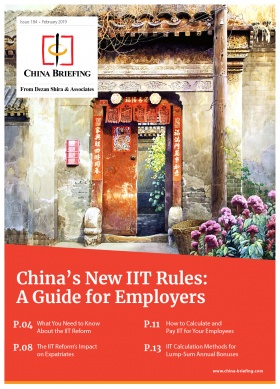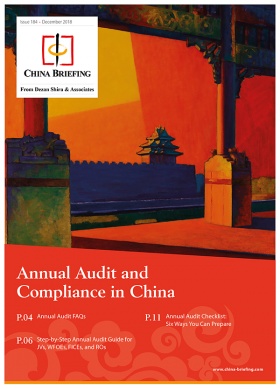Legal Updates Businesses in China Should Note from July 1

China’s recent economic statistics have been troubling businesses and market analysts alike.
In May this year, China’s industrial output dropped to a 17-year-low of five percent, well below the expected 5.5 percent. This was coupled by a marked cooling of investment, which grew at 5.6 percent in the January-May period, much lower than the 6.1 percent as previously forecasted.
The underwhelming statistics seem to have finally struck top-decision makers in Beijing. Consequently, China’s central government has introduced new stimulus packages and fee cuts, besides streamlining administrative procedures to support businesses.
According to the National Development and Reform Commission, it is hoped that the new measures will reduce the burden on enterprises and individuals, and in turn boost the economy.
Here is a brief roundup of key legal changes coming into effect July 1.
Simplified administrative procedures, reduction of fees
Beginning July 1, the government will introduce various new cost-saving measures for businesses.
For the IT industry, a new preferential policy will waive the fee for frequency occupancy (radio and satellite frequency) for the first three years to encourage the development of new technologies and services.
However, for fees that should be paid before July 1, 2019, the reimbursement will be levied according to the original standard.
Fees associated with the registration, update, and renewal of trademarks have also been reduced to encourage more businesses to officially register their correct information.
The fee for trademark registration has been halved from RMB 1,000 (US$146) to RMB 500 (US$73), while any changes made to the trademark will only incur RMB 150 (US$22), down from the previous RMB 250 (US$36). See full list of fee changes here.
Just this April, a new law was released, which gave China’s Trademark Office the authority to reject applications made in bad faith to prevent trademark squatting.
Taken together with the latest administrative changes, China seems determined to strengthen its intellectual property protections for businesses and ensure transparency in their regulation.
Vehicle Purchase Tax Law
In accordance with the Vehicle Purchase Tax Law (Chairman’s Order No. 19), taxpayers who purchase vehicles, trams, car trailers, and motorcycles with an engine cylinder displacement of more than 150 milliliters within China will be subject to a vehicle tax of 10 percent.
The definition of taxable vehicles has narrowed – vehicles explicitly excluded are urban railway transportation, electric motorcycles, and special purpose vehicles, such as loaders, excavators and bulldozers, cranes, and forklifts.
The taxable amount will usually refer to the amount indicated on the relevant document when acquiring the vehicle, excluding the VAT.
However, if the vehicle is imported, the taxable amount will be the price paid, including customs duty, tariffs, and consumption tax.
This tax is a one-time collection; it can only be applied once per vehicle.
Alongside the new law, complementary regulations will take effect on the same date, which clarify the details of the law and address the collection and management of the levy.
Reprioritization of government investment
The State Council recently released the Regulations on Government Investment (State Council Order No. 712) that stipulate the future direction of government investment at the national scale.
The regulations introduce simplified approval procedures for specific projects relating to expansion and reconstruction, small scale investment, simple technical solutions, and emergency construction.
Further, a government investment fund (budgetary fund for fixed asset investment and construction activities) will be earmarked for under-resourced and stagnating projects relating to social welfare, public infrastructure, agriculture and rural development, ecological environment protection, major scientific and technological progress, social management, and national security.
Businesses should look to the regulations on government investment as an indicator of the future direction of government-led projects and the immediate or auxiliary opportunities available for foreign investors within these plans.
More importantly, it marks an important step in establishing more legal accountability in the field of investment and construction – a hopeful sign for businesses looking for more regulatory certainty in this area.
About Us
China Briefing is produced by Dezan Shira & Associates. The firm assists foreign investors throughout Asia from offices across the world, including in Dalian, Beijing, Shanghai, Guangzhou, Shenzhen, and Hong Kong. Readers may write to china@dezshira.com for more support on doing business in China.
- Previous Article Shanghai Businesses to Comply with New Waste Management Norms from July 1
- Next Article Setting Up a Joint Venture in China


























